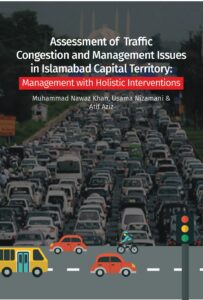Most millennials may not remember what or even who exactly and why the war in Afghanistan even began. But those who have fought in the region, live in (and around) its continually tested, re-configured horizons can probably never forget.
The papers, thought pieces and essays in this volume trace the multifarious ways in which the now almost ‘normative’ tenor of War can be intra-actively undermined through policies, programmes and ideas that insist on the possibilities of Peace in Afghanistan. While much has been written on this country, this book ambitiously seeks to map an emergent constellation of ideas from policymakers and analysts, academics and soldiers who are painstakingly aware of the importance of Peace in this part of the world. Together, this collection weaves a new perspective of how the past, present and future generation sees the conflict in Afghanistan.
Contemporary Afghanistan can provide immense opportunities which can benefit South and Central Asia in particular and the world at large. Its strategic location can act as a bridge between different continents – the magic words being – Desire for Peace instead of Desire for Power.
Edited by Sarah Siddiq Aneel
Book Contents
PART I
Welcome Address
Brig. (R) Sohail Tirmizi, SI(M)
Opening Remarks
Kristof Duwaerts
Inaugural Address
Sartaj Aziz
Understanding ‘Peace’ for Afghanistan
Keynote Address
Dr Hazrat Omar Zakhilwal
Beyond Routine: A Proposal for a ‘Special’ Relationship between Pakistan and Afghanistan
Keynote Address
Owais Ahmed Ghani
Concluding Address
Tehmina Janjua
Policy Recommendations of the Conference
PART II
Existing Situation in Afghanistan
- Regional Dynamics and Implications for Afghanistan
Dr Farhan Hanif Siddiqi
- Ingress of Non-State Actors in Afghanistan – Islamic State
(ISIS) and Al-Qaeda
Dr Attaullah Wahidyar
- Effective Pak-Afghan Border Management: A Key to Security in the Region
Maj. Gen. (R) Ijaz Hussain Awan, HI (M)
Structural Problems to the Security of Afghanistan: Review of Non-Traditional Challenges
- Capacity Evaluation of the Afghan National Unity Government: Governance, Economic Management and Security
Sayed Mahdi Munadi
- Financial Resources of Transnational Terrorism
Major General (R) Khawar Hanif, HI (M)
Peace Initiatives by Regional Partners and Coalition Countries
- US Vision of the End-State in Afghanistan: The Obama Era and A Trump Presidency
Dr Marvin G. Weinbaum
- About Possible International Cooperation for Normalisation of Situation in and around Afghanistan
Dr Grigory Tishchenko
- Achieving Peace in Afghanistan: An Iranian Perspective
Dr Seyed Rasoul Mousavi
Achieving Peace in Afghanistan: A Way Forward
- Building Consensus among Major Stakeholder Countries on Afghanistan
Dr Liu Zongyi
10. How Reconciliation and Confidence Building Measures fit into the Broader
Challenge of Afghan Peace-making?
Michael Semple


